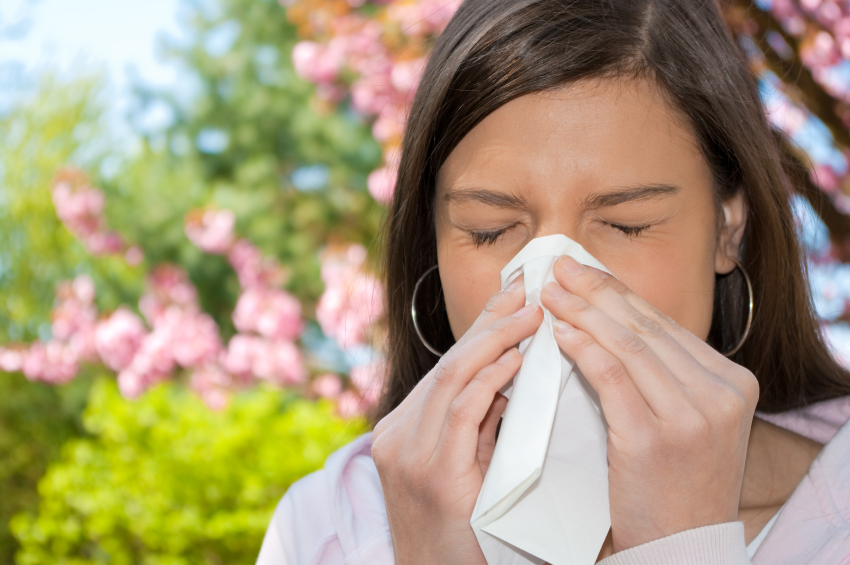The science behind how lavender is relaxing
01/18/2019 / By Zoey Sky

Lavender-scented products like essential oils are popular among consumers who want to relax. The scent is also the go-to choice of people who practice aromatherapy for stress relief. According to a recent study, scientific data can help prove why lavender (genus Lavandula) is associated with feelings of relaxation.
The study, which was published in the journal Frontiers in Behavioral Neuroscience, is the first of its kind to prove that the vaporized lavender compound linalool must be smelled – not absorbed in the lungs – to make use of the compound’s calming effects. The researchers said that linalool can be used to relieve preoperative stress and anxiety disorders.
Dr. Hideki Kashiwadani, the study’s co-author from Kagoshima University in Japan, explained that practitioners of folk medicine believe odorous compounds from plant extracts can ease anxiety.
While modern medicine tends to overlook the potential benefits of these scented compounds, they are worth considering, especially since there is a need for safer alternatives to current anxiolytic (anxiety-relieving) drugs like benzodiazepines.
The use of anxiolytic drugs are often associated with negative side effects, such as:
- Confusion
- Dizziness
- Drowsiness
- Feelings of depression
- Grogginess
- Headaches
- Impaired coordination
- Trembling
- Vision problems
Can science prove the relaxing effects of lavender?
Various studies have determined that linalool, a fragrant alcohol found in lavender extracts, does have potent relaxing effects. However, Kashiwadani noted that these studies don’t usually focus on the sites of action of linalool.
Experts previously believed that absorption into the bloodstream via the airway resulted in the direct effects on brain cell receptors like GABAAR, which are also targeted by benzodiazepines. However, verifying the true mechanism of linalool’s relaxing effects was necessary before researchers could start studying its clinical use in humans.
For the study, the researchers used mice models to test if it was the smell of linalool – or the stimulation of olfactory (odor-sensitive) neurons in the nose – that triggers relaxation.
The researchers observed the behavior of mice exposed to linalool vapor to determine its anxiolytic effects. Similar to earlier studies on the compound, the researchers observed that linalool has an anxiolytic effect in normal mice. Additionally, exposure to linalool didn’t impair their movement, unlike benzodiazepines and linalool injections, which both affected movement in a similar manner to alcohol.
There is one thing to consider: Linalool didn’t have the same anxiolytic effect in anosmic mice, or mice whose olfactory neurons were destroyed. This implies that the relaxing effect in normal mice was due to olfactory signals triggered by the odor of linalool.
Additionally, the anxiolytic effect in normal mice disappeared when the subjects were pretreated with flumazenil that blocks benzodiazepine-responsive GABAA receptors.
Kashiwadani said that once they are combined, linalool doesn’t act directly on GABAA receptors like benzodiazepines. In fact, linaool activates GABAA receptors through olfactory neurons in the nose to produce the observed relaxing effects. (Related: Anxious? Inhaling lavender oil can dramatically reduce your stress, study finds.)
The study findings suggest that relaxation observed in mice models fed or injected with linalool may be due to the smell of the compound that is emitted in the exhaled breath of the subjects. The researchers think that similar studies can help establish the targets, safety, and efficacy of linalool administered via different routes, before they can start with human trials.
Kashiwadani noted that the findings can pave the way for other studies on the clinical use of linalool to ease anxiety, such as in surgery where pretreatment with anxiolytics can address preoperative stress so patients can be placed under general anesthesia more smoothly. He added that vaporized linalool could be used as a safe alternative for patients who may have difficulty with the oral or suppository administration of anxiolytics, like infants or confused elders.
Browse more articles about the health benefits of lavender at NaturalCures.news.
Sources include:
Tagged Under: alternative medicine, Anxiety, anxiety disorders, anxiolytic drugs, benzodiazepine, essential oils, flumazenil, herbal medicine, Herbs, Lavender, linalool, natural cures, natural medicine, prevent anxiety, relaxation, remedies, research, scientific














